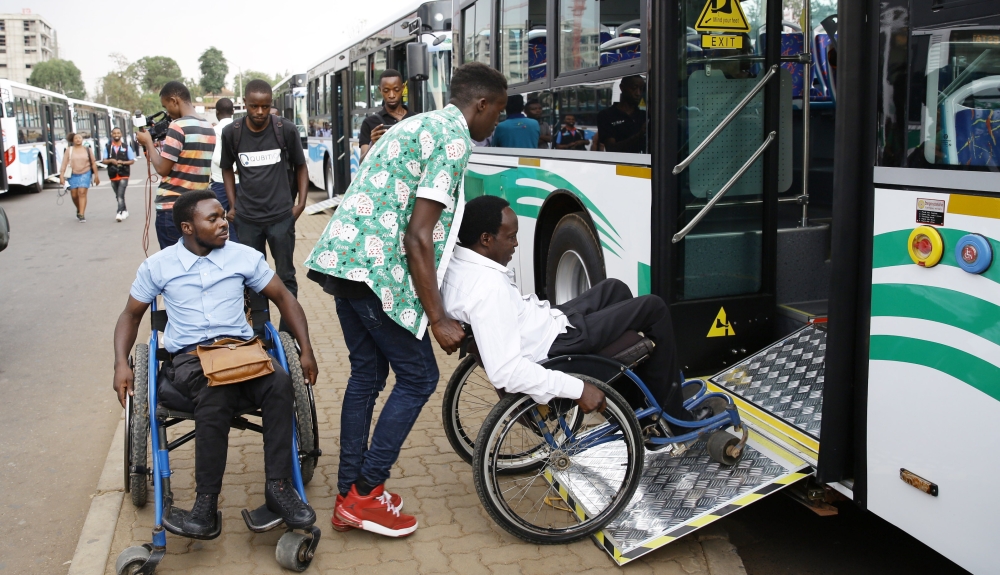

The National Council for Persons with Disabilities (NCPD) has renewed its call on public transport operators to make necessary adjustments to vehicles in order facilitate easier access by people with disabilities.
The council urges bus operators to prioritize ease of movement, ensuring that all passengers, regardless of their physical capabilities, travel comfortably.
ALSO READ: People with disabilities outline top issues that need advocacy
"We assess whether the available vehicles facilitate persons with disabilities, especially those traveling to districts outside Kigali. Priority should be given to assisting persons with disabilities before anyone else,” said NCDP Executive Secretary Emmanuel Ndayisaba.
The same concern has been raised by organisations of people.
While a number of buses in Kigali city often assist passengers with physical disabilities to board, for the buses in the provinces people with disability rely on other passengers for support.
Currently, over 200 buses designed to assist individuals with disabilities are in service in Kigali.
Donatille Kanimba, the Executive Director of the Rwanda National Union of the Blind (RNUB), told The New Times that one major problem that people with disabilities have when boarding buses from Kigali to the provinces is high steps at the entrance.
"The lack of accessible buses equipped with ramps or lifts exacerbates this problem, making independent travel a daunting task,” Kanimba said.
ALSO READ: Rwanda looks to new efforts for supporting persons with disability
But lack of ramp access is not the only problem with public transport, she noted.
"For individuals with visual impairment, the absence of bus conductors, who once called out to indicate the presence of a bus, poses a significant challenge,” Kanimba said.
"Without conductors, visually impaired passengers must rely on bystanders to alert them of an approaching bus. However, this is not always the case, and it leaves many unsure of when to board.
"The need for a more inclusive transport system that includes audio announcements to indicate bus arrivals is crucial and where it has reached is much needed.”
ALSO READ: Eastern Province: Persons with disabilities call for inclusiveness
Agnes Umutoni, who has a visual impairment, said people with disabilities are still vulnerable to theft on public transportation.
"Visually impaired passengers, in particular, are often targeted by pickpockets or would unknowingly receive incorrect change from dishonest conductors, though the recent adoption of Tap and Go cards has helped mitigate this issue,” Umutoni said.
"There is also a concern about accessibility inside the buses. Although some buses have reserved seats for people with disabilities, these are not always available, and not all disabilities are visible. Ensuring that people with disabilities are considered in seating arrangements, even when their disabilities are not immediately apparent, is vital for a truly inclusive public transport system.”
For David Gatete, who has a physical disability, the government should put more effort in ensuring public transport operators facilitate easier access to passenger buses.
"As they have managed to establish accessible pathways for persons with disabilities in public buildings,” Gatete said, "similar efforts should be applied to public buses.
"As it was done with city buses, they can also be introduced in the provinces. Making it easier for us to get on and reserving favorable seats would truly be helpful,” he said.
According to the City of Kigali, only transport companies importing buses equipped with wheelchair ramp are allowed to operate.
Emma Claudine Ntirenganya, the city’s director of communications and education, said that passenger buses should enable wheelchair users to board independently without assistance.
"Additionally, the buses provide ample space for passengers with disabilities to store their crutches and white canes. Moving forward, more inclusive buses will be introduced in other regions as well,” she said.


